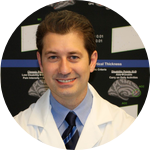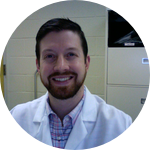About This Project
Pain is the major symptom in cancer patients, especially in the head and oropharyngeal region. Paradoxically, its main treatment, chemoradiation, is associated with excruciating pain during vital functions such as feeding. This can severely affect quality of life with rampant weight loss and narcotic intake. In this study, we will provide pain relief during chemoradiation by directly modulating and measuring pain-related brain mechanisms
Ask the Scientists
Join The DiscussionWhat is the context of this research?
Mucositis, a generalized ulceration of the oral cavity and throat, can be seen in as high as 80% of head and neck cancer patients during chemoradiotherapy. This can result in weight loss, enteral feeding tubes, stoppages of treatment, and increased narcotic use.
Transcranial direct current stimulation (tDCS) with EEG offers a unique approach in cancer pain research, as we can directly modulate and measure central pain relief mechanisms in humans. tDCS has been demonstrated to be effective in several pain conditions (e.g. chronic migraines and neuropathic pain), by also inducing the immediate release of endogenous opioids in the brain - our own pain-killing resources. However, tDCS has never been used to alleviate pain suffering and improve life quality of patients during chemoradiotherapy.
What is the significance of this project?
Despite advancements in cancer treatment technologies, patient quality of life still suffers greatly during their chemoradiotherapy. Numerous strategies have been attempted to prevent or reduce chemoradiation pain, to no avail. The unintentional weight loss has been associated with lower survival rates and is an independent predictor of mortality in patients with stage III and IV tumors.
Alleviation of mucositis pain could increase dietary intake and decrease weight loss and narcotic use, leading to a decrease in morbidity and mortality in these patients.
Besides its solid neuroscience principles and consistent analgesic effects, tDCS is also portable, easy to apply, and has low-cost. These advantages make tDCS a powerful candidate as a cancer pain therapy, even in poor countries.
What are the goals of the project?
We plan to utilize tDCS and surveys to compare the effect of tDCS versus the standard of care on patient-reported odynophagia (painful swallowing).
- Additionally, we will look at comparisons between tDCS and standard of care during chemoradiotherapy of:
- Weight loss
- Narcotic pain medication use
- Feeding tube placement
- Quality of odynophagia and mucositis pain
- Overall mucositis pain
- Changes in diet
- EEG changes in cognitive and sensory cortical areas in the brain during the tDCS trial
With new technology, we can now use the same equipment to simultaneously record EEG data before, during, and after neuromodulation. This allows us to further analyze brain activity of patients receiving tDCS and standard of care therapy.
Budget
Supplies
The supplies related to the tDCS sessions include electrodes, special EEG caps, EEG conductivity gel, tDCS sponges, software for data analysis.
Patient reimbursement
Reimbursement of patients' expenses strictly related to the sessions including for instance hospital parking and driving/cab costs.
Biostatistician fees
Payment of biostatistician services for our research data analysis.
Meet the Team
Team Bio
Dr. Alex DaSilva received his Doctorate in Medical Science (DMedSc) degree in Oral Biology with clinical training in Orofacial Pain at Harvard University. His team at H.O.P.E. Lab uses state-of-art neuroimaging technologies to identify the therapeutic mechanisms of pain neuromodulation, as well as its immediate and long-term effects on the human brain in vivo.Dr. Clayton Fisher received his DDS from the University of Michigan school of dentistry, and is the 3rd year Oral & Maxillofacial Pathology resident, completing his Master's research in head and neck cancer pain.
Clayton A. Fisher
3rd year Oral & Maxillofacial Pathology resident at the University of Michigan School of Dentistry,
DDS - University of Michigan, School of Dentistry
BA - University of Michigan
Lab Notes
Nothing posted yet.
Additional Information
 The Neuroelectrics StarStim cap on a member of the research team, simultaneously recording EEG and stimulating the brain!
The Neuroelectrics StarStim cap on a member of the research team, simultaneously recording EEG and stimulating the brain!
Project Backers
- 3Backers
- 2%Funded
- $54Total Donations
- $18.00Average Donation

